Pope Francis Welcomes President of Portugal
His Excellency Marcelo Rebelo de Sousa
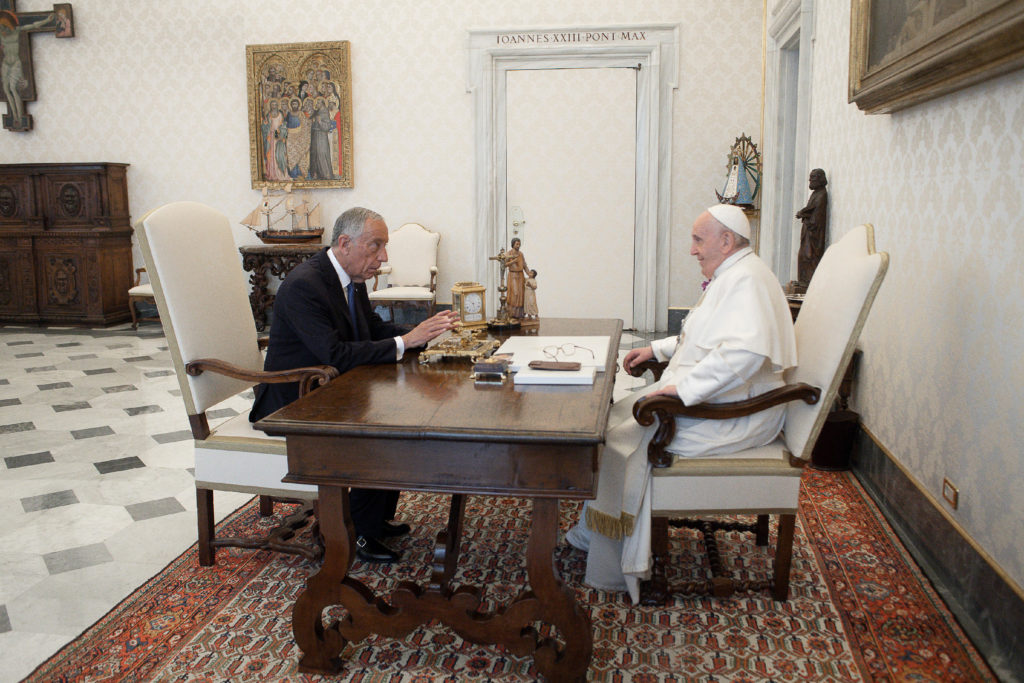
Today, in the Vatican Apostolic Palace, Pope Francis received in audience His Excellency Marcelo Rebelo de Sousa, President of the Republic of Portugal, who subsequently met with His Eminence Cardinal Secretary of State Pietro Parolin, accompanied by Archbishop Paul Richard Gallagher, Secretary for Relations with States.
During the visit, the President’s first foreign trip since his re-election, satisfaction was expressed at the good relations between the Holy See and Portugal, as well as the contribution made by the Church to the life of the country, with special reference to the management of the current health crisis, the defense of life, and peaceful social co-existence.
In the context of the Portuguese presidency of the European Union, attention turned to some issues of a regional and international nature, such as multilateralism, overcoming the emergency of the pandemic, and commitment to peace.
On January 24, 2016, Rebelo de Sousa was elected as President of Portugal in the first round of voting. He stood as an independent, appealing for moderation and cross-party consensus. During his election campaign, he promised to repair political divisions and the hardship of Portugal’s 2011–14 bailout. Unlike his predecessor, Aníbal Cavaco Silva, he had never previously held a top state position.
In March 2020, Rebelo de Sousa asked parliament to authorize a state of emergency to contain the COVID-19 pandemic; this marked the first time the country declared a state of emergency nationwide in 46 years of democratic history.
In December 2020, Rebelo de Sousa announced his intention to run for office again in the 2021 Portuguese presidential election.
Marcelo was re-elected president in January 2021, with 60.7 percent of the votes, the third-highest vote margin ever in presidential elections in Portugal since the Carnation Revolution. He was also the first candidate ever to win the vote in all municipalities. Ranging from 51.3 percent in the Beja District and 72.16 percent in Madeira.
Related
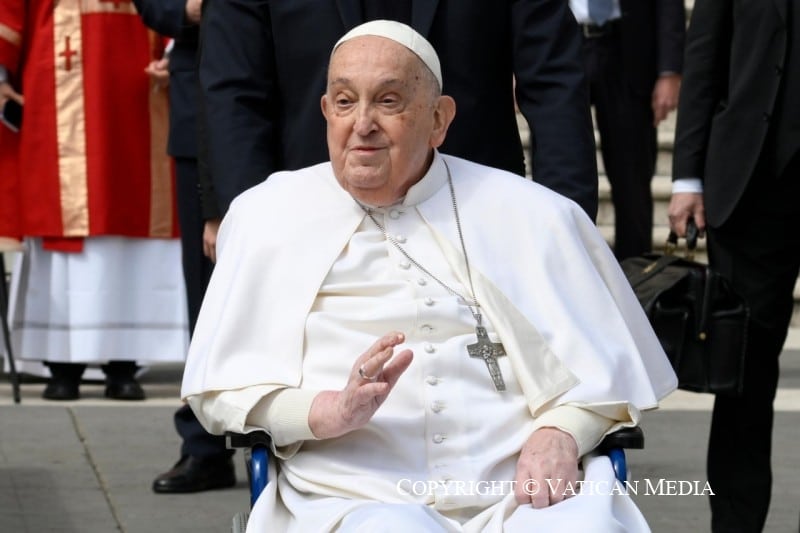
Palm Sunday: “Father, into your hands I commend my spirit”
Exaudi Staff
13 April, 2025
2 min
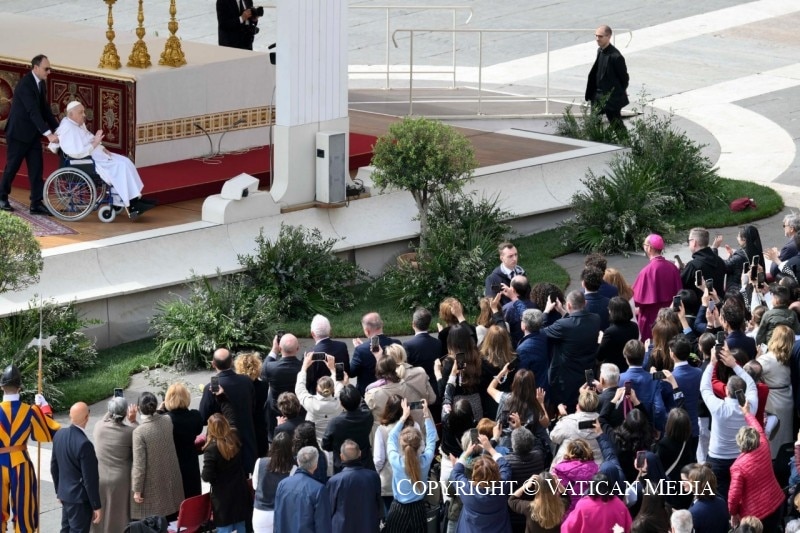
“Jesus’ passion becomes compassion when we reach out to those who can no longer bear it”
Exaudi Staff
13 April, 2025
5 min
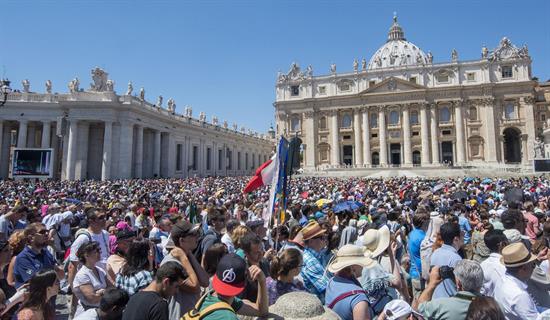
Pope Francis Sends a Message of Hope to the Young People of the UNIV 2025 International Congress
Exaudi Staff
11 April, 2025
5 min
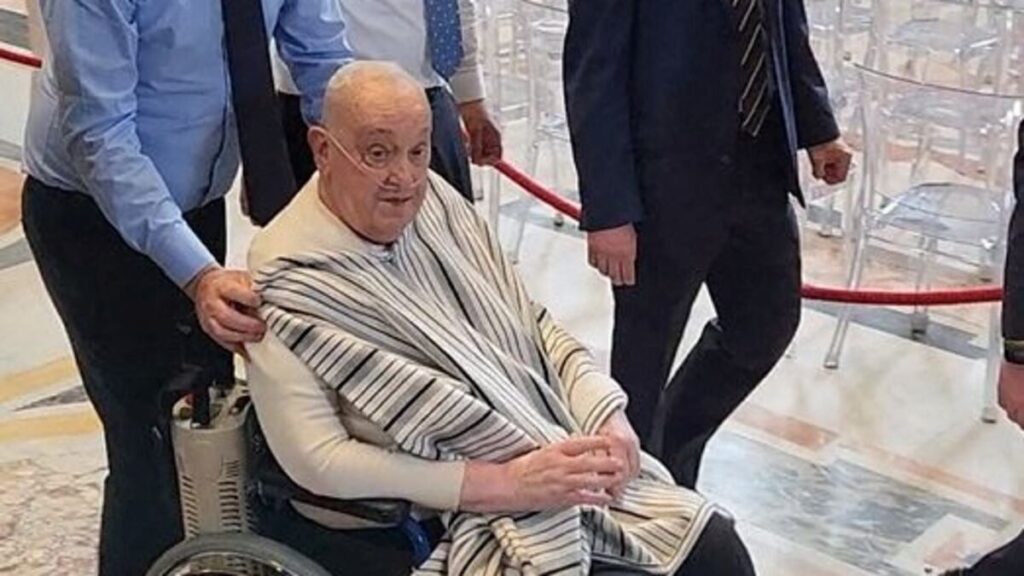
Pope Francis continues his recovery at Santa Marta with signs of improvement
Exaudi Staff
11 April, 2025
1 min
 (EN)
(EN)
 (ES)
(ES)
 (IT)
(IT)

